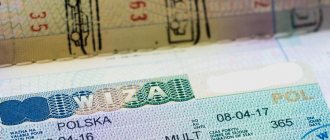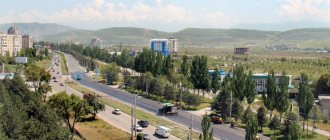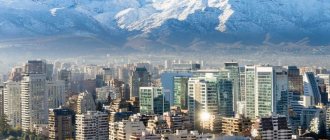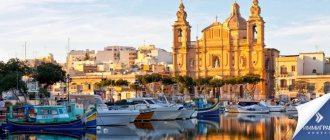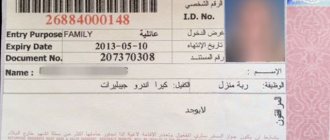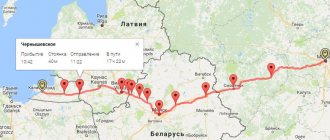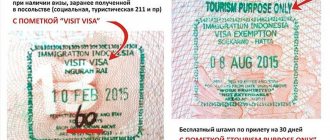Morocco without a visa: rules of entry and stay
Visa-free entry for Russians into this country has existed since 2005, when the Kingdom of Morocco unilaterally introduced this permit. If a longer stay is necessary (more than 3 months), Russians must apply for a residence permit. To do this, you should contact the local authorities of the Ministry of Internal Affairs no later than 15 days before the end of the visa-free stay.
To enter Morocco, Russians will need:
- fill out the migration card correctly;
- undergo inspection at customs;
- Show your foreign passport; it must still be valid for at least six months.
Sample of filling out a migration card in Morocco
Note! The visa-free regime is provided only for citizens of the Russian Federation. Foreign citizens permanently residing in Russia and having the appropriate permission to do so are required to obtain an entry visa to enter the Kingdom of Morocco. To do this, you should contact the Moroccan Embassy in Moscow.
Sometimes the passport control procedure can become a little more complicated: the customs officer has the right to require you to present a hotel reservation and proof of financial solvency. Please note that you are required to have these documents with you in any case; of course, they may not be asked, but you must have them with you. In addition, if for some reason airport employees consider you suspicious, they may require you to undergo a personal search. There is nothing wrong with this procedure, especially given the turbulent situation in the world. There is no need to resist if you have nothing to hide and do not intend to bring anything prohibited. The inspection will be quick and painless.
If everything is fine and you have passed customs inspection, then they will not put a visa in your international passport, but a special stamp where your individual number will be indicated; when you depart from the country, exactly the same mark will be made in your passport.
When crossing the border by car, you should acquire an international license; ordinary Russian licenses are not valid in the Kingdom. Also at customs you will need to show the registration certificate for the car and insurance for it.
The rules for entering Morocco are slightly different from the standard ones. One of the main criteria for obtaining visa-free entry is unquestioning compliance with customs rules.
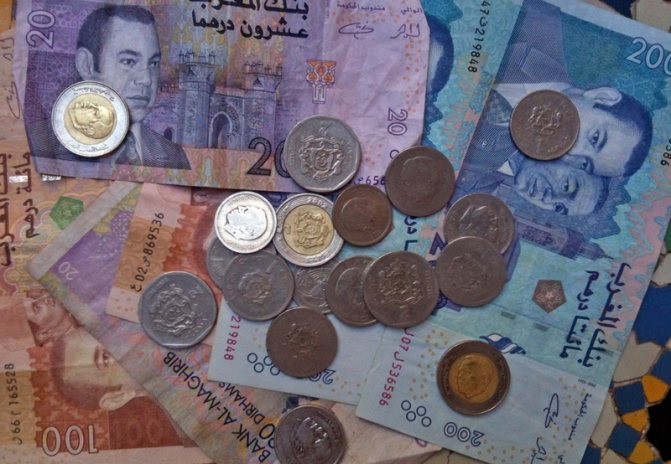
As for currency, things are as follows: you can import an unlimited amount of foreign money into the territory of the Kingdom of Morocco, but exporting local money is strictly prohibited! On the territory of the country, you can use only local money - dirhams, in fact, as in all other developed countries.
Alcohol and tobacco can be brought into the Western Kingdom, but in limited quantities:
- strong alcohol – 1 bottle;
- wine – 1 bottle;
- 10 packs of cigarettes.
If you want to bring in more alcohol or tobacco products, you must declare them.
It is strictly prohibited to import:
- things that are prohibited by Islamic norms;
- weapon;
- drugs;
- gasoline in cans.
Photo and video equipment must be packed and declared. If you are bringing professional equipment with you, for example, large lenses, you must obtain special permission to import these items from the Moroccan Embassy in Russia. Also, any other equipment and sports equipment must be packed in special cases and sealed. Import/export of all kinds of art objects is possible only with permission, which must be obtained in advance.
The customs policy of this country is very strict, if you break the rules, punishments follow, you can even be immediately deported from the country and banned from entering in the future.
Extension of visa-free stay
As such, there is no procedure for extending visa-free stay for Russians in Morocco. If you need to stay in the Kingdom for more than 90 days, you must apply for a residence permit by contacting the local police department 15 days before the end of the visa-free stay.
There is another unofficial way to extend your visa-free stay. You can leave Morocco and go to Tunisia for one day and return to the Kingdom again, thereby resetting the three-month counter of your stay in the country. However, everything is at your own peril and risk. There is no official ban on such a procedure, but most likely customs officers will have additional questions for you, which can lead to unpleasant consequences. If staying in Morocco for more than 3 months is not a whim, but a necessity, it is better to apply for a residence permit.
Is it possible to extend visa-free travel?
Usually, a “visa-free” visa is more than enough to enjoy the beauties of Morocco, travel around the African country, see the sights and relax at resorts. But many people do not want to leave the kingdom even after 3 months of living on its territory.
All fascinated by the exotic state need to act in one of the following ways:
- Apply for a temporary residence permit. To do this, you will have to visit the police station and submit a corresponding application.
- Leave Morocco and return after some time. The 3-month visa-free stay will begin to count down again.
To use the second method, Russians do not have to return to their homeland. For example, you can fly to visa-free Tunisia. And having a Schengen visa will allow you to travel to Europe, separated from the monarchical power by the Strait of Gibraltar.
What visa is needed in Morocco, and in what cases
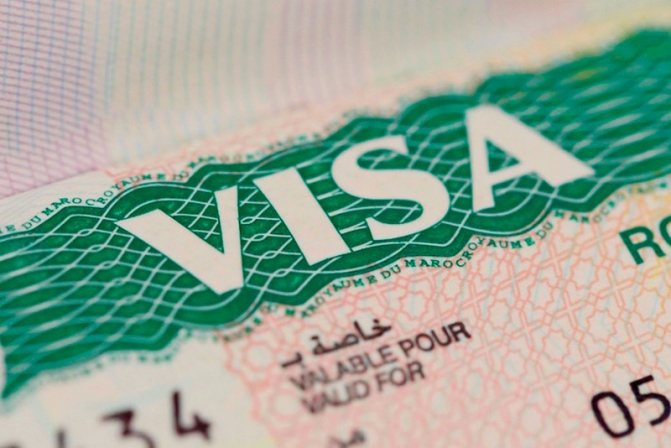
Russians who intend to visit Morocco for tourism purposes do not need to apply for a visa. However, a visa-free stamp does not allow you to stay in this country for a long period (more than 90 days), and it is also prohibited to work or study. For these purposes, Morocco issues special visas:
- working;
- business;
- transit;
- student;
- long-term;
- resident card.
Citizens of the Russian Federation do not need to obtain a transit visa. Russians can stay in Morocco for up to 90 days without additional permits!
With the help of a student visa, a person has the opportunity to obtain higher education at one of the universities in Morocco.
With a work visa, you have the opportunity to legally work in this country and receive wages for your work. A business visa similar in principle, in addition to everything else, it gives the opportunity to open your own companies in Morocco.
Despite its name, a long-term visa is not actually a long-term visa; it is only issued for three months. The main purpose of this visa is a business trip, conference, etc.
A residence permit is initially issued for a period of one year; if a person plans to continue to stay in this country, he can apply for an extension of this visa, the maximum period of stay is 5 years. This type of visa opens many doors, with it you are almost on an equal footing with citizens of that country.
Self-permit procedure
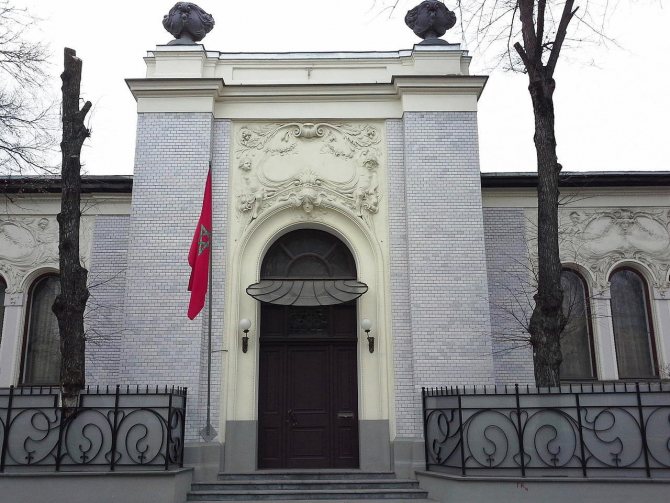
The procedure for the legal stay of a foreigner in the territory of the Moroccan Kingdom depends on which country he is a citizen of, as well as the purpose and duration of his stay.
If Russian travelers visit Morocco for tourism purposes, they do not need to apply for a visa; a special mark is placed in their foreign passport.
To obtain all other types of visas, you must go to the Moroccan consulate located in Russia. It is located in the capital. To obtain permission on your own, a citizen will have to contact the embassy three times:
- During the first visit, a person receives a questionnaire and a list of required papers.
- On the second visit, the consulate accepts the necessary documents.
- At the 3rd meeting, the citizen is given a foreign passport - if the outcome is positive, he will receive a visa.
This process should only be carried out by the person who needs to obtain permission - this matter cannot be trusted to strangers.
Documents for a visa to Morocco
To be eligible to apply for a visa, you must first prepare a package of papers. All documents must be translated into Arabic or French; the passport does not need to be translated; translations must be officially certified by a notary. It is worth reminding once again that Russians do not need to waste their personal time on obtaining a tourist and transit visa.
To apply for a visa you need to collect the following documents:
- visa application form;
- photographs – 4 pieces;
- a copy of a foreign passport;
- proof of payment of the visa fee;
- present a document where you will be staying in Morocco (hotel reservation, rental housing, etc.);
- honey. insurance.
The above is only a standard set of documents that is required for any type of visa. Depending on the type of visa, additional documents will also be required.
In order to obtain a tourist visa , you only need to have a reservation from the hotel where the applicant plans to stay during the holiday.
Students planning to study in the Kingdom need a letter of invitation from the university, which states that the student is enrolled in studies.
To obtain a work visa, you need to have a letter of invitation from your future employer, and you also need to have a certificate from your previous place of work.
To obtain a business visa, you need to submit an invitation from partners in Morocco and a letter from an employer from Russia, which confirms that you have the right to represent the company in your own person.
For a long-term visa, you only need to carry round-trip tickets.
Almost everyone has the right to apply for a residence ; to do this, you need to bring to the Consulate:
- copy of foreign passport – 2 copies;
- photographs – 6 pieces;
- marriage certificate (if you have one);
- documents confirming that you have a place to live in the Kingdom;
- a bank statement confirming that the applicant actually has funds;
- honey. insurance for the entire period of stay in the country.
What should the photos be like?
A fairly large number of countries have many special visa photograph requirements. Morocco does not set strict rules on this point. The photo must be a standard 3 by 4 centimeters; any accessories that make it impossible to recognize the person in this photo are prohibited.
Immigration card
At the border checkpoint, along with a foreign passport, each visitor submits a completed immigration card. The required form will be given on the plane or right at the border. There is no need to download the form online and fill it out in advance. Such a document may not be accepted. Although the immigration card is filled out in English, entering the requested information will not be difficult. If necessary, you can ask for help from a steward or border control officer.
The immigration document states:
- Basic personal data: first and last name;
- surname at birth (if it subsequently changed);
- Date and place of birth;
- civil status;
- state of residence;
- profession;
- passport details.
- city of arrival in Morocco and city of departure from the country;
All words are written legibly in block letters and without blots. You need to use a pen with blue or black ink.
How much does a visa to Morocco cost?
Thanks to the friendly attitude of the Moroccan authorities towards Russia, they not only made visa-free entry for Russian citizens, but also removed the fee for entering the country. This means that upon arriving in the Kingdom, you do not pay anything.
When issuing a regular visa, the Consulate charges a fee. A visa to Morocco costs around 2100RUB. Payment of the fee is made in Russian rubles, so due to currency fluctuations, this figure may change. You can find out more on the official website of the Moroccan Embassy or by calling +7(495)637-73-51.
Reasons for refusal
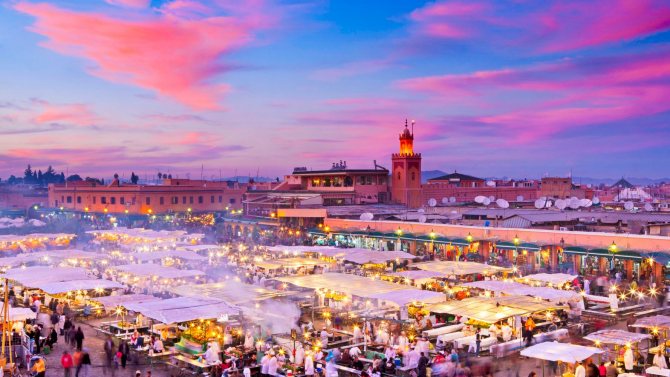
The Royal Embassy may decide to refuse permission to visit the country. This happens due to non-compliance with customs regulations. If a foreigner adheres to all established laws, correctly filled out the application form and provided all the necessary documents, refusal is impossible.
In some cases, consular officials may refuse to issue a document and have the right not to explain the reason for their decision.
The most common reasons for refusal are:
- errors when filling out the form and processing documents;
- fraud or illegal actions have been detected;
- there were violations in the previous visa regime;
- the foreigner was blacklisted.
Registration period
After submitting a complete package of documents, Embassy employees inform you of the approximate date for completion of the review of documents. Typically this process takes no more than two weeks. There are cases that the applicant may be called for a personal interview, in which case this will slightly increase the period for reviewing documents.
The period for complete paperwork for a visa-free visit to the Kingdom is about 1 hour, this time includes waiting in line and customs inspection. The visa stamp is placed within a few minutes.
Trip to Morocco with children
Certain rules apply to children when entering Morocco:
- if the child has already reached the age of 14 and has his own foreign passport, then a migration card must be issued for him;
- when the child is under 14 years old and is included in the parents’ passport, then the card must be filled out one for two;
- if a child is traveling with one parent, permission from the second will be required;
- if it is not possible to obtain such permission, then you must have a documented compelling reason. For example, death or missing person.
These are the basic rules for crossing the state border for children; the Moroccan immigration service does not impose any additional requirements.
Extension of temporary stay
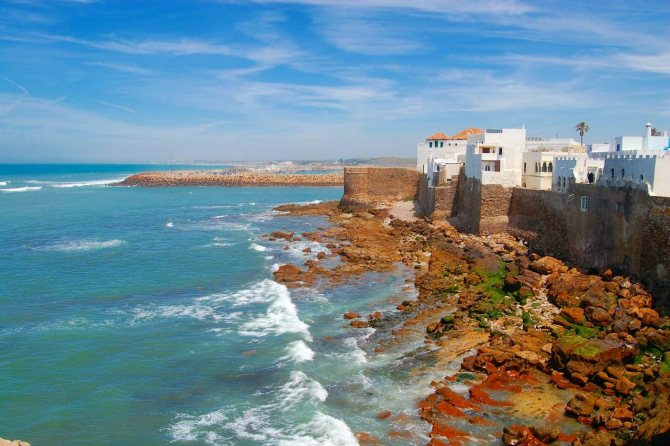
If there is a need to renew your permit, you need to go to the Moroccan police department. The period can be extended by 90, 185 or 360 days, depending on the purpose of the stay.
On a note! It is important to submit your request no later than two weeks before the document expires.
